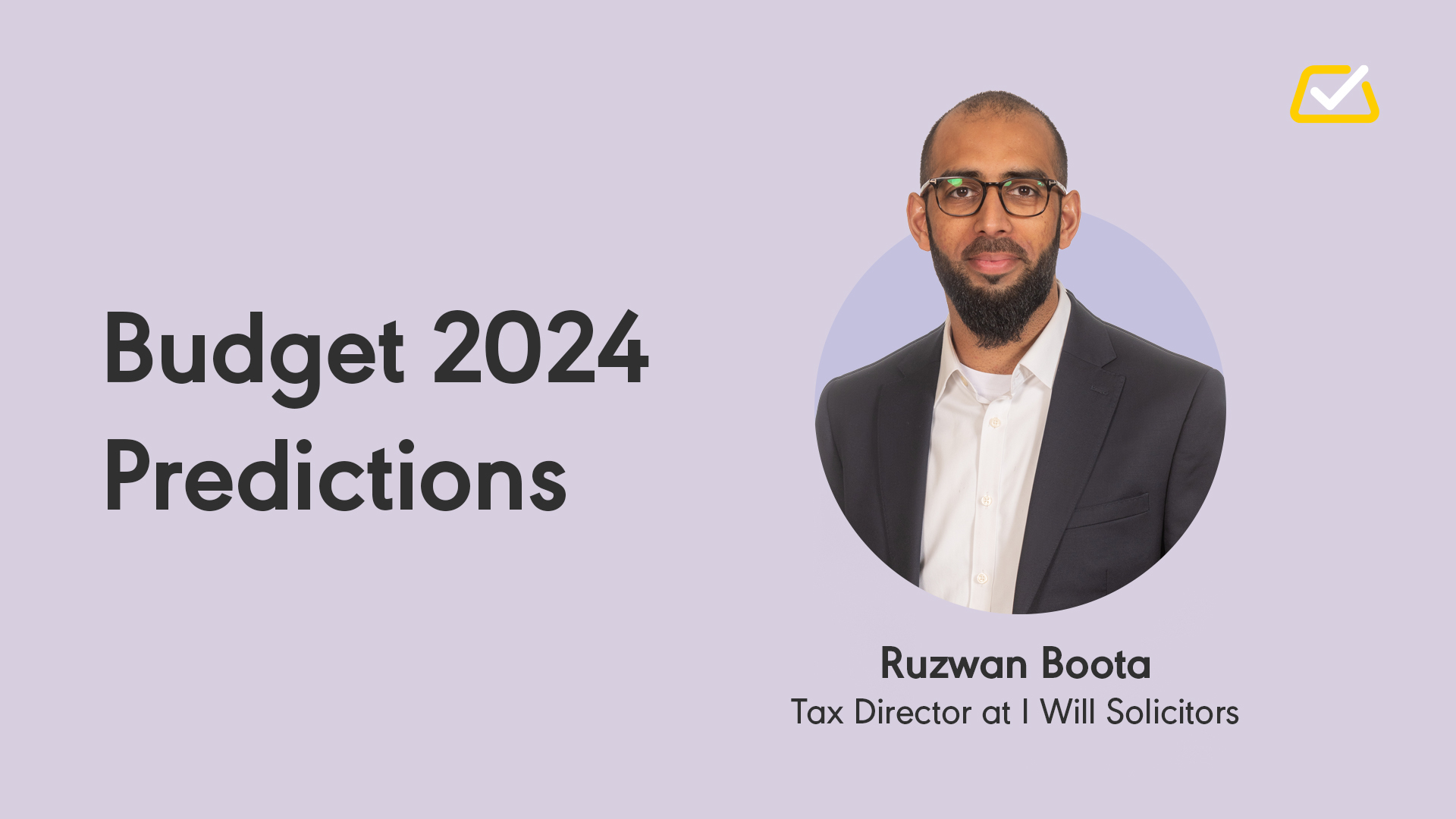What is an Islamic Will And Why Every Muslim Needs To Have One

As Muslims, we know that death is promised to us. Our life in this world is temporary, and a test for us to worship Allah SWT and reach paradise. As such, it’s our duty to diligently prepare ourselves as best as we can for our eventual departure from this world. One critical, yet often overlooked aspect of this preparation is having a will in place.
The Prophet ﷺ said,
"It is not permissible for any Muslim who has something to will to stay for two nights without having his last will and testament written and kept ready with him." (Sahih al-Bukhari 2738)
A will is a religious obligation upon us and ensures the fair distribution of our wealth according to Islamic principles. However, many Muslims find wills complicated. 40% of British Muslims do not know how to form a will, and 43% feel the procedure to be too complex, difficult, or expensive. So we can only imagine how big this issue is on a global scale.
In this article, I will seek to clarify what an Islamic will is and make the case for why all eligible Muslims must have one.
What is a Will?
A will is defined as
a legal document containing instructions as to what should be done with one's money and property after one's death.
The only difference between a regular will and an Islamic will is the basis upon which a person’s wealth is distributed. Years ago, I might have considered the term "Islamic Will" a misnomer, associating wills with non-Muslims, particularly wealthy, elderly individuals.
As a young Muslim growing up in the 1990s, wills were not part of my thinking, likely because I didn't know anyone who had one and hadn't yet experienced a family death. When it came to death, the Muslim community's discourse rarely touched on practical aspects of estate distribution.
My perspective changed nearly twenty years ago after experiencing the loss of a close family member and the troubles that followed. This led me to learn the rules of inheritance in Islam and understand exactly what an Islamic will is.
What is an Islamic Will?
An Islamic Will comprises two elements, the fixed-share portion of the inheritance and the Wasiyyah.
The first thing to make clear is that there is a difference between a will in the UK (and elsewhere) and the concept of willing an estate in Islam, known as the Wassiyah. Under UK law, an individual has complete testamentary freedom. This means that any sane adult can decide precisely how all of their estate is distributed.
Will vs Wasiyyah
In Islam, there is a famous hadith which restricts the testamentary capacity of an individual:
From Sa’d ibn Abi Waqqas:
Allah’s Messenger ﷺ visited me in my illness which brought me near death in the year of Hajjat-ul-Wada’ (Farewell Pilgrimage). I said: Allah’s Messenger, you can well see the pain with which I am afflicted, and I am a man possessing wealth, and there is none to inherit me except only one daughter.
Should I give two-thirds of my property as Sadaqa? He said: No. I said: Should I give half (of my property) as Sadaqa? He said: No. He (further) said: Give one-third (in charity) and that is quite enough. To leave your heirs rich is better than to leave them poor, begging from people. (Sahih Muslim)
So the Prophet ﷺ has restricted the testamentary capacity of an individual to up to one-third of their estate. An individual may utilise some, all or none of this amount. What then of the remaining portion, and how can the Wasiyyah be used?
How much should you leave as a Wasiyyah?
The answer depends largely on your individual circumstances.
For example, when advising a newly married couple with young children, we usually suggest limiting the Wasiyyah to below 10% of the estate. As the hadith of the Prophet ﷺ makes clear, it is better to leave heirs well-off and self-sufficient.
Conversely, older couples can often leave more if their children are already financially stable and do not need the extra helping hand of a larger inheritance.
An additional option we often suggest is that a married couple give less on the first death (between husband and wife) and more on the second death. This assists with the greater up-front needs that are often present on the death of the first spouse whilst ensuring that a good proportion of the estates ends up passing to charity, worthy causes or needy relatives after the second death.
The Fixed Two-Thirds
Once an individual decides on how they wish to utilise their Wasiyyah, the remainder must pass in fixed shares.
The rules of distribution for the fixed shares are set out in three verses of the Quran in Surah An-Nisa (verses 11, 12 and 176), along with several Ahadith and rulings from the Companions of the Prophet ﷺ.
These rules have all been ordered and codified by the scholars of early Islam into a complete system of devolution of an estate. The rules are so comprehensive that every individual’s circumstances, no matter how seemingly complex, will be catered for.
Learning the rules of inheritance can seem daunting to the uninitiated. However, although the rules can become complex, the vast majority of people will fall into a scenario which is straightforward to calculate and requires knowledge of just a handful of rules. There are many resources available which can help you learn more, and if in doubt, you may consult a trained Scholar or Islamic Will Practitioner.
What are the benefits of an Islamic will?
1. Preserves Family Ties
One of the biggest issues faced when an individual dies is the potential for the family unit to be disrupted. Disputes over a person's estate can be disastrous for a family.
The fixed-share element is designed to fulfil the obligations of an individual to their closest family and preserve the family unit. Furthermore, the rules of distribution have been divinely codified, ensuring that the needs of each family member are taken into account in a fair and just manner.
2. Allows Personal Bequests
The Wasiyyah is a powerful means given by Allah to benefit those in need. This could be through donations to charity, taking care of circumstances unique to the individual, such as a family member in need, and recognising life-long relations, friendships and causes dear to each person.
3. Peace of Mind
Establishing an Islamic will before your death will ensure that your loved ones are looked after and your Islamic duties are fulfilled.
It will also help your loved ones, as there will be no debate and confusion over your wishes, and you can arrange for things such as funeral expenses.
Summary
In conclusion, it is essential for every eligible Muslim to have an Islamic will. By adhering to the principles of Islamic inheritance laws, we not only fulfil our religious obligations, but also ensure the fair distribution of our wealth and preserve family ties.
An Islamic will also allows us to make personal bequests and contribute to worthy causes, leaving a lasting legacy that can benefit others even after our departure. Taking the time to understand and draft an Islamic will is an investment in our spiritual well-being and the well-being of our families. By doing so, we can achieve peace of mind and a sense of completion, knowing that not only will our final rites be carried out in an Islamic manner, but that we have also left things in place for our loved ones after we have passed.
If you're looking to create your own Islamic will, iWills can help.
We are the UK’s leading Islamic Wills and Probate Solicitors and have advised on over 5000 Islamic Wills since 2007. Click here to get started.
Rizwan Rashid is a Director and Practice Manager at iWill Solicitors. He has been with iWill Solicitors since 2009 and has become an important leader in the team. In 2016, he completed a nine year Islamic Aalim course, which demonstrates his commitment to Shariah compliance. Rizwan is currently authoring a book on Islamic Wills and the wisdom behind the Islamic laws of inheritance.
Risk Warning: Equity investments are not readily realisable and involve risks, including loss of capital, illiquidity, lack of dividends and dilution, and it should be done only as part of a diversified portfolio. Investments of this type are only for investors who understand these risks. You will only be able to invest in the company once you have met our conditions for becoming a registered member.
Please visit www.wahed.com/uk/ventures/risk for our full risk warning.
Risk Warning: As with any investment, a Wahed Invest Ltd investment puts your money at risk, as the value of your investment can go down as well as up. The tax treatment of your investment will depend on your individual circumstances and may change in the future. If you are unsure about whether investing is right for you, please seek expert financial advice.
Please visit www.wahed.com for our full terms and conditions
Maydan Capital Limited, trading as WahedX, is registered in England and Wales (Company No. 13451691), registered office: 87-89 Baker Street, London, W1U 6RJ, UK. Maydan Capital Ltd (FRN: 963613) is an appointed representative of Wahed Invest Ltd (FRN: 833225), an authorised and regulated firm by the Financial Conduct Authority.Wahed Invest Ltd. is registered in England and Wales (Company No. 10829012), registered office: 87-89 Baker Street, London, W1U 6RJ, UK and is authorised and regulated by the Financial Conduct Authority: FRN 833225.
Subscribe For More Islamic Finance Content
As with any investment, a Wahed Invest Ltd investment puts your money at risk, as the value of your investment can go down as well as up. The tax treatment of your investment will depend on your individual circumstances and may change in the future. If you are unsure about whether investing is right for you, please seek expert financial advice.
Wahed Invest LLC (Wahed) is a US Securities and Exchange Commission (SEC) registered investment advisor. Wahed Invest provides brokerage services to its clients through its brokerage partner Apex Clearing Corporation, a member of NYSE - FINRA - SIPC and regulated by the SEC and the Commodity Futures Trading Commission. Registration does not imply a certain level of skill or training. Wahed does not intend to offer or solicit anyone to buy or sell securities in jurisdictions where Wahed is not registered or a region where an investment practice like this would be contrary to the laws or regulations. Any returns generated in the past do not guarantee future returns. All securities involve some risk and may result in loss. Any performance displayed in the advertisements or graphics on this site are for illustrative performances only.
Disclaimer: Wahed Technologies Sdn Bhd ("Wahed") is a Digital Investment Manager (DIM) licensee issued by Securities Commission Malaysia (eCMSL/ A0359/2019). It is part of Wahed Inc. Wahed is authorized to conduct a fund management business that incorporates innovative technologies into automated portfolio management services offered to clients under a license issued pursuant to Schedule 2 of the Capital Markets Services Act 2007. All investments involve risks, including the possibility of losing the money you invest, and the track record does not guarantee future performance. The history of returns, expected returns, and probability projections is provided for informational and illustrative purposes, and may not reflect actual future performance. Wahed is not responsible for liability for your trading and investment decisions. It should not be assumed that the methods, techniques, or indicators presented in this product will be profitable, or will not result in losses. The previous results of any trading system published by Wahed, through the Website or otherwise, do not indicate future returns by that system, and do not indicate future returns that will be realized by you.
Wahed Invest Limited is regulated by ADGM’s Financial Services Regulatory Authority (“FSRA”) as an Islamic Financial Business with Financial Services Permission for Shari’a Compliant Regulated Activities of Managing Assets and Arranging Custody [Financial Permission No. 220065]. Our ADGM Registered No. is 000004971.
Wahed assumes no obligation to provide notifications of changes in any factors that could affect the information provided. This information should not be relied upon by the reader as research or investment advice regarding any issuer or security in particular. Any strategies discussed are strictly for illustrative and educational purposes and should not be construed as a recommendation to purchase or sell, or an offer to sell or a solicitation of an offer to buy any security. Furthermore, the information presented may not take into consideration commissions, tax implications, or other transactional costs, which may significantly affect the economic consequences of a given strategy or investment decision. This information is not intended as a recommendation to invest in any particular asset class or strategy or as a promise of future performance.
There is no guarantee that any investment strategy will work under all market conditions or is suitable for all investors. Each investor should evaluate their ability to invest long term, especially during periods of downturn in the market. Investors should not substitute these materials for professional services and should seek advice from an independent advisor before acting on any information presented. Any links to third-party websites are provided strictly as a courtesy. We make no representation as to the completeness or accuracy of information provided at these websites nor do we endorse the content and information contained on those sites. When you access one of these websites, you are leaving our website and assume total responsibility and risk for your use of the third-party websites.







